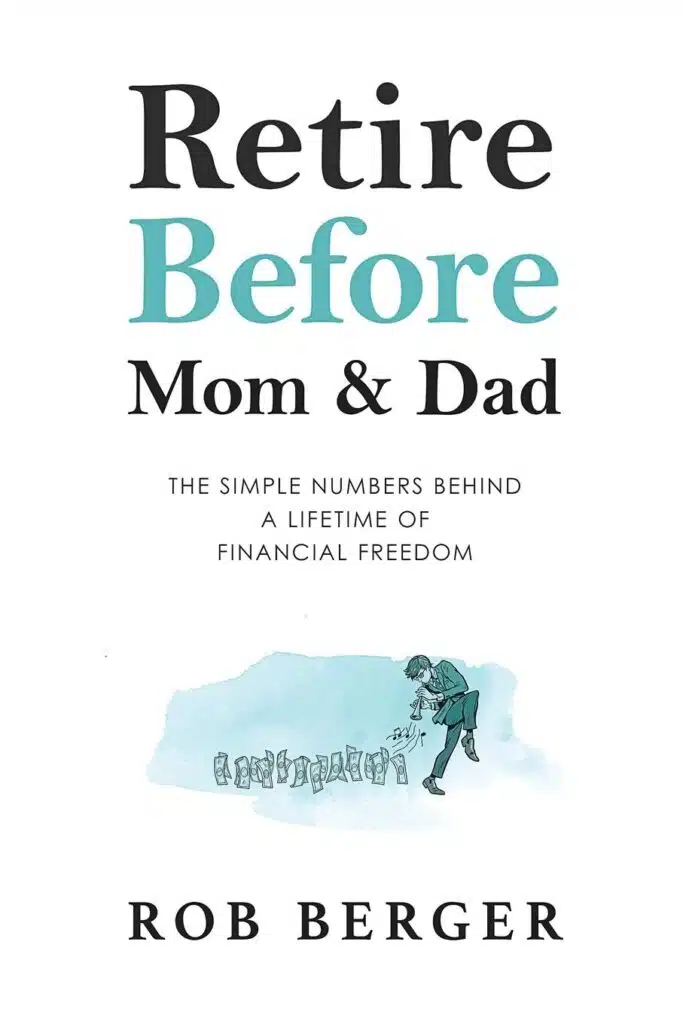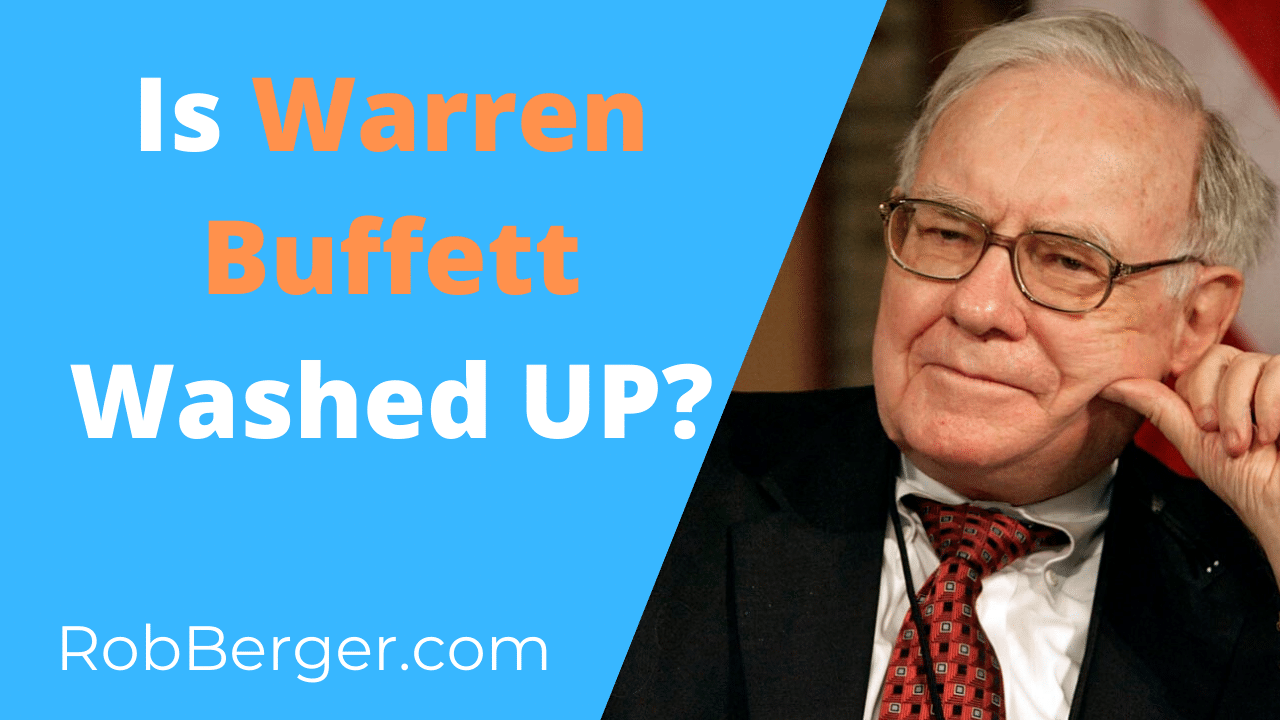Has Warren Buffett Lost the Midas Touch?
We earn a commission from the offers on this page, which influences which offers are displayed and how and where the offers appear. Learn more here.
Investors and analysts have fallen out of love with Warren Buffett. At least that’s the claim by some as reported by Business Insider. The story claims that Berkshire has suffered from “chronic underperformance.” A MarketWatch piece piled on, describing what it called a “vast underperformance.” Later the same article said Buffett is “profoundly underperforming” the market.
Chronic. Vast. Profound.
Combining all three, are we to believe that Warren Buffett has fallen into an intense, persistent, and immense underperformance? We’ll answer that question in this article. The answer, as it turns out, teaches us four important lessons about investing.
Let’s start with the claim of underperformance.
Has Berkshire Hathaway Underperformed the Market?
Howard Gold of MarketWatch never seems to miss an opportunity to take a shot at Warren Buffett. His latest missive claims that “Dud stock picks, bad industry bets, vast underperformance — it’s the end of the Warren Buffett era” (Source).
Gold claims Buffett has “profoundly” underperformed the S&P 500 during the “entire 11-year bull market.” The math backs up Gold’s claim. From 2009 through 2019, Berkshire Hathaway has indeed trailed the S&P 500. By my calculations, Berkshire’s Compound Annual Growth Rate (CAGR) during this time was 12.10%. Respectable, but well below the S&P 500’s 14.69%.
To put these numbers into perspective, let’s assume we invested $10,000 at the start of the 11-year bull market. An investment in Berkshire would have grown to just over $35,100. An investment in the S&P 500, including dividends, would have grown to more than $45,000. And this brings us to lesson #1.
Lesson #1: Always question the numbers and underlying assumptions
In this case one has to ask why Gold selected the 11-year period. Yes, it represents the last bull market, but so what? Why does that make it a meaningful period to evaluate? What if we shave off a couple of years or add a couple? What happens then?
Well, If we look at the last decade, 2010 through 2019, the numbers are almost identical. Berkshire enjoyed a 13.09% CAGR; the S&P 500 came in at 13.57%. The S&P 500 still edged out the Oracle of Omaha, but one can hardly call that vast, chronic or profound.
And if we go back to 2007 to capture both the market collapse and bull market, Buffett comes out on top: 9.05% vs 8.82%. As it turns out, Buffett has underperformed the market, but only if you are very selective in the time period you chose to consider.
Complaints About Warren Buffett’s Investments
There have been several complaints leveled against Buffett recently. Generally speaking, they fall into one of three categories: (1) he’s made some bad investments, (2) he’s allowing Berkshire to hold too much cash, and (2) he missed out on the Coronavirus sell-off. We’ll start with the first complaint and then we’ll look at the other two together because they are related.
Bad Investments
There’s no question that several Berkshire investments have not done well.
Airlines
Berkshire invested about $7 or $8 billion in airlines, amassing sizable positions in four airlines:
- Delta Air Lines (DAL): 11%
- American Airlines Co (AAL): 10%
- Southwest Airlines Co (LUV): 10%
- United Airlines (UAL): 9%
(Source)
Following the fallout from COVID, Berkshire exited this positions.
According to Warren Buffett:
When we sell something– when we sell something, very often, it’s going to be our entire stake. I mean, we don’t trim positions or– that’s just not the way we approach it, anymore than if we buy 100% of a business we’re going to sell it down to 90% or 80%. If we like a business, we’re going to buy as much of it as we can and keep it as long as we can. But when we change our mind . . . Well, when we change our mind, we don’t take half measures or anything short. So I was amazed at how we frankly, now, we sell– we were selling them at far lower prices than we paid. But I was amazed at the volume. Now airlines always trade in large volume relatively, but– but we have sold the entire positions. (Source)
Why did Buffett sell? In addition to the complete collapse in demand for air travel, it’s likely due to the industry’s need to borrow billions of dollars to keep planes in the air. (Source) This money will be paid back out of future earnings, substantially reducing the enterprise value of each airline. Selling equity to raise capital is no better, as the new shares dilute the ownership interest of existing owners.
According to MarketWatch, Berkshire lost $5 billion. (Source).
Kraft Hines
According to a Harvard Business Review article, “Earlier this year, the company suffered a massive loss in less than 24 hours — $4.3 billion, to be precise. And over a two-year period, the fiasco cost Berkshire Hathaway $20 billion, possibly its worst loss ever.” According to MarketWatch, Berkshire has lost $2 billion on its $10 billion investment. (Source). However you do the math, the investment has not been a winner.
Occidental Petroleum
In 2019, Berkshire invested $10 billion in Occidental preferred shares to help the company in its $38 billion acquisition of Anadarko Petroleum. At the time, Buffett called the investment a long-term bet on oil prices (Source).
Oil prices then crashed, and Occidental was saddled with a debt. In April, Berkshire agreed to accept stock in lieu of a cash dividend. (Source)
Lesson #2: Make sure you get all the facts
Yes, these investments have not performed well. Still, the investments in Kraft Hines and Occidental may prove over time to do just fine. The story there is not over. More importantly, those who focus just on these investments don’t tell the whole narrative. For example, they conveniently leave out the fortune Berkshire has made on its Apple investment or the remarkable cashflow it enjoys from its wholly owned business.
The point: Be sure you get all the facts.
No Coronavirus Investments & Too Much Cash
“I am nervous that he may have missed this whole rally,” James Shanahan, an analyst at Edward Jones, told the Financial Times. “That’s frustrating.” “A lot of retail investors were plowing money into the market and doing better than professional investors,” he continued. “I think you can include Buffett in that.” (Source).
Billionaire investor Ken Fisher made a similar claim. He claimed that Buffett’s failure to take advantage of the coronavirus sell-off was due to his advanced age (Source). Buffett turns 90 in August.
Lesson #3: Don’t confuse price movement with value
While it’s a common mistake, I was surprised to see the likes of Ken Fisher make it. Just because stocks have fallen by 30% doesn’t mean they are a great buy. Yes, they are a better buy then they were before the fall. But they could still be overvalued. Indeed, the S&P 500 as measured by the P/E Ratio is still overvalued by a wide margin based on historical standards.
Furthermore, the story is not over. We aren’t through the first wave of Covid-19, never mind a second wave. Buffett buys based on his evaluation of value, not the recent price movements of a stock or index. We would do well to follow his example.
Warning for Investors in Actively Managed Mutual Funds
Even the best investments and investment strategies will underperform from time to time. Berkshire is no exception.
- In 1974 it lost 48.7% while the S&P 500 lost just 26.4%
- In 1990 it lost 23.1% while the S&P 500 lost just 3.1%
- In 1999 Berkshire lost 23.1% while the S&P 500 GAINED 21% thanks to the tech bubble.
The same is even true for index funds. There will be markets where actively managed funds, on the whole, outperform passive investments. And that brings us to our last lesson.
Lesson #4: Choose an investment strategy you can stick to even in bad years
It’s for this reason that I favor low cost index funds. When they are down I know it’s not because a money manager has lost his or her touch. No mistakes have been made. No bad investment decisions. It’s just the market.
As for Berkshire, I’ll keep my shares in the company, thank you very much. I view it like a low cost, extremely tax efficient large cap mutual fund. Even better, it’s not limited to publicly traded companies; it can buy whole companies.

New to investing and managing your money? Check out my book,
Retire Before Mom and Dad.
“This book is a must-have for anyone, regardless of age, to understand how to grow and protect our money over the course of our lives.” — Adrienne

